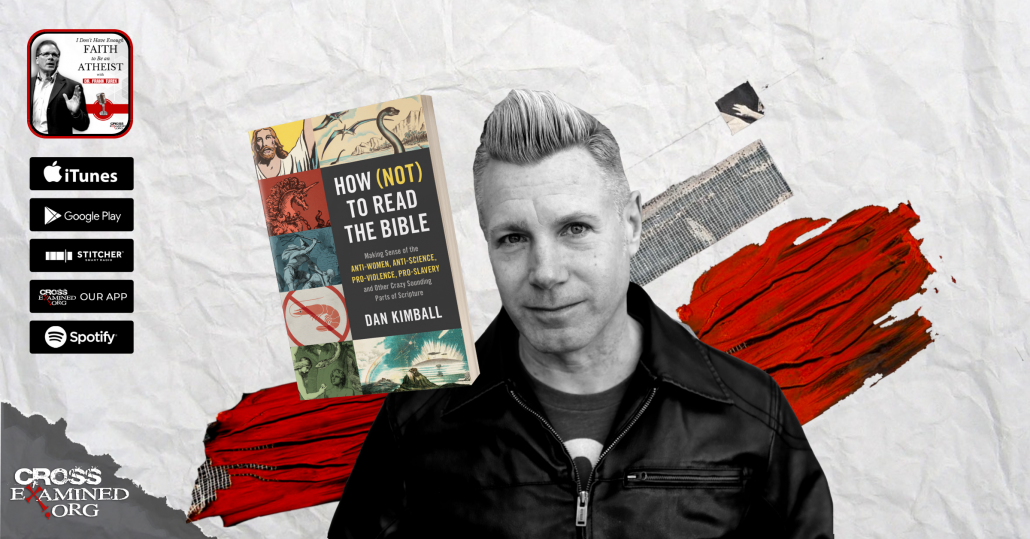By Ryan Leasure
In this post, we’re asking the question: How should Christians think about the Transgender Movement? In many respects, this is a difficult question to answer because the movement is constantly in flux and definitions frequently change. Be that as it may, Christians must do their best to engage Transgenderism from a biblical worldview.
God’s Good Creation
From the outset, we must acknowledge that Transgenderism was not part of God’s pre-fallen creation. Not only did God create both male and female as a complementary pair, his assessment of his creation was that “it was very good” (Gen. 1:31). Both male and female, image-bearers of God, in perfect fellowship with God and each other.
In addition to their harmony with God and each other, both man and woman had perfect harmony with their bodies. Genesis 2:25 tells us that “The man and his wife were both naked and were not ashamed.” No disgust or confusion existed in humanity’s gender identity. They were comfortable in their own skin. So much so, that nudity was an afterthought.
Corruption Of Sin
Sadly, paradise was lost. Man and woman chose to usurp the lordship of God and declare themselves to be their own lords. Instead of submitting to God’s good direction, they carved out a new one for themselves. Unfortunately, we’ve been doing the same thing ever since — defying God’s authority and calling our own shots.
Immediately after the first humans sinned, the way they interacted with the world shifted dramatically. Genesis 3:7 reports this shift: “Then the eyes of both were opened, and they knew that they were naked. And they sewed fig leaves together and made themselves loincloths.” Before the fall, naked and unashamed. After the fall, bodily shame.
They experienced this shame, not simply because their bodies began a long journey of decay, but because sin ransacked their minds. Jeremiah says it most succinctly, “The heart is deceitful above all things, and desperately sick; who can understand it?” (Jer. 17:9). As a result, we can’t always trust our thoughts and feelings because sin has corrupted them.
At root, this is the underlying cause of the Transgender movement. We are a people who have been so radically affected by sin’s corruption, that we’ve become uncomfortable with our own bodies. This is especially the case for Transgender individuals who experience gender dysphoria.
Definitions
In order to think biblically about the Transgender Movement, we must have a basic understanding of the following definitions:1
Sex — Refers to one’s biological makeup and composition (XX or XY chromosome).
Gender Identity — A person’s self-perception of whether they are male or female (or something else entirely).
Gender Dysphoria — A mismatch between the gender that matched one’s biological sex and the gender one feels oneself to be.
Cisgender — A term used to refer to people who have a match between their biological sex and their personal gender identity.
Transgender — A term used to refer to individuals who identify or express a gender identity that does not match their biological sex.
The Perfect Storm
In order for Transgenderism to gain a footing in western culture, several factors had to coalesce to provide the proper soil for the movement to sprout.2 The first factor is the culture’s embrace of relativism. Relativism is the view that objective truth does not exist. Instead, everyone experiences their own individual truth. Hence, phrases such as “you can’t tell me what to do” or “you live your truth and I’ll live mine” pervade the cultural landscape.
Another factor is our post-Christian society. It’s no surprise that our culture is running away from its Christian roots at a rapid pace. While residual effects still linger, the dominating forces our our culture — the university, the media, and the entertainment industry — are increasingly leading us away from Christianity’s influence.
A third factor is our embrace of the sexual revolution. With the rise of no-fault divorce, the pill, and the separation of sex from procreation in general, western culture has embraced the mantra “if it feels good, do it.” That is to say, no sexual boundaries exist anymore except a consenting partner.
And fourth, a gnostic view of reality undergirds the Transgender Movement. The ancient heresy of gnosticism taught that the physical world is evil, while only the spiritual is good. In the same way, Transgenderism has embraced the idea that one’s feelings ought to trump one’s biology.
The combination of these various factors has provided the perfect storm for the rise of the Transgender Movement.
What Transgender Activists Won’t Tell You
I recently read an op-ed in the New York Times titled “My New Vagina Won’t Make Me Happy.” The author, Andrea Long Chu begins with a shocking admission:
Next Thursday, I will get a vagina. The procedure will last around six hours, and I will be in recovery for at least three months. Until the day I die, my body will regard the vagina as a wound; as a result, it will require regular, painful attention to maintain. This is what I want, but there is no guarantee it will make me happier. In fact, I don’t expect it to.
Notice how Chu admits that the surgery won’t actually reassign sex. Chu’s body will regard the vagina as a mere wound which will require ongoing treatment. That is to say, all that surgery and cross-sex hormones can do is provide cosmetic changes. They cannot change one’s chromosomes. People who undergo sex reassignment surgery, therefore, do not become the opposite sex. They simply masculinize or feminize themselves.
While the activists want to paint a beautiful picture of the Transgender Movement, the reality is much, much darker. Chu goes on to state in the article, “I feel demonstrably worse since I started on hormones. . . . Like many of my trans friends, I’ve watched my dysphoria balloon since I began my transition.” Statements like these ought to grieve us. People like Chu deal with deep emotional pain and they deserve our most sincere compassion. Gender dysphoria is no joke, and we ought not treat it lightly. What this article makes clear, though, is that transitioning away from one’s biological gender is not the solution to one’s problems. In fact, it often makes one feel worse.
Chu writes, “I was not suicidal before hormones. Now I often am.” Sadly, this is a reality for many Transgender people. Studies show, that no matter how accepting one’s culture is, risk of suicide remains astronomically high for those who undergo sex reassignment surgery.
I don’t mention any of these points lightly. I’m grieved over the pain many experience. But if there’s anything that we can learn from stories like Chu’s, it’s that embracing Transgenderism is not the solution.
Ramifications
While the Transgender Movement touts its desire to make sure everyone gets fair treatment, the reality is that the movement mows down anyone in its path. Consider Canadian psychologist Kenneth Zucker, former director of the Centre for Addiction and Mental Health (CAMH) and its Gender Identity Clinic (GIC). While Zucker himself was not opposed to the Transgender Movement, activists pushed for his termination because he was insufficiently pro-trans. His sin? He believed that we should be cautious when transitioning children. The World Professional Association for Transgender Health (WPATH) pressured the Canadian government into shutting down his practice despite that fact that his patients gave him raving reviews.3
Of course, this raises this issue of children who experience gender dysphoria. Unfortunately, activists push for kids to transition despite the fact that 80-95% of all kids who experience gender dysphoria grow out it.4 As part of the treatment plan, they urge puberty blockers and cross-sex hormones. Once kids reach the age of eighteen, then they can get sex-reassignment surgery if they like. But in what world with any moral decency is it appropriate to manipulate children’s physiology like this, not to mention their emotional state?
Bathrooms and locker rooms have also been front and center of this conversation. While the issue is probably most significant for schools, the debate went national with the North Carolina bathroom bill which stated that Transgender individuals had to have their birth certificate changed to their new preferred gender before they were allowed to use the opposite bathroom. This led to a massive outcry by cultural elites. PayPal terminated their expansion plans in North Carolina over this human rights violation. Of course, they kept their international headquarters in Singapore where private, homosexual sex will get you a two-year prison sentence.
Sports is another area affected by the Transgender Movement. Recently, Laurel Hubbard, formerly known as Gavin, won two gold medals in weightlifting at the Pacific Games. In Texas, Mack Beggs won her second straight wrestling state championship. Mack is biologically female, but transitioned to a male a few years ago by receiving testosterone injections. Mack went 36-0 in her final season. Controversies also surround Transgender track and field athletes because of their unfair advantage over biological females. And then there’s a Transgender UFC fighter who cracked an opponent’s skull and sent her to the hospital to receive treatment for severe head injuries.
In the end, the Transgender Movement isn’t all about fair and equal treatment. It holds no prisoners for anyone who opposes it. Doctors, employers, and politicians must toe the line lest they encounter the wrath of the activists. But perhaps the biggest victims of the movement are girls and women. Not only has their privacy been violated by allowing biological males to share locker rooms with them, they are also put at unfair advantages athletically having to compete against bigger, faster, stronger men.
Rebellion Against Our Maker
Deuteronomy 22:5 states, “A woman shall not wear a man’s garment, nor shall a man put on a woman’s cloak, for whoever does these things is an abomination to the LORD your God.” At root, the problem is a rejection of God’s creative design. God made us male and female (Gen. 1:27), and the very small number of intersex cases doesn’t undermine that.5
The command in Deuteronomy 22:5 couldn’t be any clearer. Don’t reject God’s biological design for you by pretending to be something you are not. Just like Adam and Eve, Transgenderism is a rejection of God’s lordship over us. It shakes its fist back at God and says “don’t tell me what to do!”
This rejection only comes by a willful suppression of the truth. Even though God has revealed his plans for sex in nature, people have chosen to go in a different direction. We read in Romans 1:24-25, “Therefore, God gave them up in the lusts of their hearts to impurity, to the dishonoring of their bodies among themselves, because they exchanged the truth about God for a lie and worshiped and served the creature rather than the Creator, who is blessed forever! Amen.”
Concluding Thoughts
Gender dysphoria is a real issue that has caused untold thousands deep emotional distress. As Christians, we should be sympathetic towards these unique struggles and provide support and encouragement with a spirit of grace. In my next post, I will go a bit further into this by asking: How should Christians lovingly engage those with same-sex attractions or gender dysphoria?
Recommended resources related to the topic:
Is Morality Absolute or Relative? by Frank Turek (DVD/ Mp3/ Mp4)
Stealing From God by Dr. Frank Turek (Book, 10-Part DVD Set, STUDENT Study Guide, TEACHER Study Guide)
Legislating Morality: Is it Wise? Is it Legal? Is it Possible? by Frank Turek (Book, DVD, Mp3, Mp4, PowerPoint download, PowerPoint CD)
Ryan Leasure holds a Master of Arts from Furman University and a Masters of Divinity from the Southern Baptist Theological Seminary. Currently, he’s a Doctor of Ministry candidate at the Southern Baptist Theological Seminary. He also serves as a pastor at Grace Bible Church in Moore, SC.
Original Blog Source: https://cutt.ly/ogSEK4E








